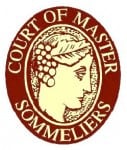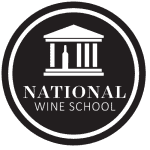Sommelier Courses and Education Levels
There are four major sommelier courses available in the United States. Choosing the right one is an important first step. This article breaks down everything you need to know about your options.
Of the four, WSET and NWS offer more of the classroom experience, with regularly scheduled weekly classes that culminate in a final exam. Outside education is not required, as what you learn in class will be enough to pass the exams.
CMS and ISG are more focused on administering exams. While they offer seminars, outside reading, and education are required to pass their exams. CMS uses a system of approved tutors who are all but required if you want to pass the higher sommelier course levels.
Sommelier Feedback on Sommelier Courses
The current Reputation Report on Sommelier Education provides an insightful comparison of various sommelier courses and programs. This report is based on feedback from over one thousand sommeliers. The market share of each of these programs has changed dramatically since 2020, with the rise of online sommelier courses.
Detailed Student and Employee Feedback and Satisfaction
We dived deep into how students and employees feel about the sommelier courses and the companies that run them. We pulled from multiple sources, including Yelp, Glassdoor, and other publicly available resources. We also used our database of over eight thousand sommeliers in America to seek out their invaluable input. We put all that data into a specially trained AI model to condense thousands of data points into a clear, concise report on which sommelier courses are top picks for students and employees.
Teaching Quality, Student Experience, and Cost
Another key aspect is the teaching quality of the sommelier course. A poorly trained instructor makes for a poor experience. For this section, we relied on sommeliers and other wine professionals who have attended the programs. Along with the program’s quality, we have also included sommelier certification costs.
The Sommelier School Reviews
Wine & Spirit Education Trust (WSET)
WSET offers a range of courses designed for beginners and experts. Technically, they use the term “Wine Qualification” instead of “Sommelier Course,” but their programs are defacto sommelier certifications.
- Level 1 Award in Wines: An entry-level qualification providing basic knowledge of wine styles, service, and food pairing.
- Level 2 Award in Wines: A more detailed exploration of grape varieties and wine regions.
- Level 3 Award in Wines: An advanced course for those seeking an in-depth understanding of wines.
- Level 4 Diploma in Wines: A comprehensive and professional-level program for wine industry professionals.
According to the Sommelier Judges, The Wine & Spirit Education Trust (WSET) also garners significant attention, with a share of 29.18%. While popular and respected for the quality of its education, the WSET faces issues related to teaching consistency across its various franchised locations. This inconsistency can impact the overall student experience and satisfaction.
Student WSET feedback is diverse. Students from affiliated schools like the Napa Valley Wine Academy report satisfaction with the quality of education. However, other locations face criticism for inconsistent quality. A student review notes, “The variability in teaching quality can be a concern.”
Employees highlight a positive work culture and opportunities for progression but also note low salaries, lack of work flexibility, and the need for modernization in operations. The global presence of WSET offers varying experiences, emphasizing the need for careful consideration of specific locations. Some employees appreciate the supportive environment and chances for progression, while others criticize the lack of clarity in organizational strategy and limited opportunities for career advancement.
Court of Master Sommeliers (CMS)
CMS’s program is highly structured and renowned for its rigor.
- Introductory Sommelier Certificate: (L1) The first step in CMS, covering wine basics.
- Certified Sommelier Examination (L2-L3): A more advanced certification with a blind tasting and service component.
- Advanced Sommelier Certificate (L4): A high-level qualification requiring significant wine knowledge and service skills.
- Master Sommelier Diploma (L5): The pinnacle of CMS qualifications, known for its difficulty and prestige.
According to the Sommelier Judges, The Court of Master Sommeliers (CMS) holds a prominent position in the industry, evidenced by its 35.54% market share. Despite its strong industry presence, CMS faces criticism for its exclusivity and high testing fees. As discussed on platforms like Reddit, some members of the sommelier community express concerns about the organization’s elitist nature and the economic barriers it creates, urging for a more inclusive approach to sommelier education.
CMS is known for high-quality certification but faces criticism from students for its exclusivity and high testing fees. Critics note CMS’s elitist nature and economic barriers, calling for more inclusive education models. There are also concerns about the internal culture, transparency, and focus on certification rather than education. Despite these criticisms, CMS maintains a strong industry reputation. Industry insiders often highlight issues with accessibility and cost, underscoring the need for a more equitable approach to wine education.
CMS’s limited course offerings are offset by the quality of its instructors, who are often respected figures in the wine industry. Student feedback emphasizes the prestige and comprehensive nature of the program.
National Wine School (NWS)
NWS provides a series of progressive certifications culminating in advanced qualifications.
- Level One Wine Course (L1) An online-only preparatory program for beginners.
- Wine Foundation Course (L2): An intensive sommelier course focusing on fundamental sommelier and winemaker skills.
- Intermediate Sommelier Course (L3): A certification focusing on wine regions, with sections on grape varietals, history, and geography.
- Advanced Sommelier Certification (L4): Requires completion of four semesters in the Advanced Program, including courses like Food and Wine Pairing, Winemaker Certification, Italian Wine Specialist, and Luxury Wine Scholar. This leads to the Advanced Sommelier Diploma and pin.
- Master in Wine Studies™ Sommelier Certification (L5): An invitation-only program for top-tier Advanced Sommeliers, culminating in a master-level sommelier pin from NWS.
According to the Sommelier Judges, The National Wine School (NWS) is highly regarded for its educational quality and robust certification process, earning a solid market share of 17.51%. Notably, it’s praised for its legal compliance and legitimacy in the U.S. market.
Students appreciate the National Wine School’s knowledgeable instructors and comprehensive coverage. Employees like former Sommelier Instructors and Customer Service Managers express admiration for the supportive and inclusive work environment. Positive points include a great learning atmosphere and professional support.
The program’s university-level rigor is frequently highlighted in reviews, such as one stating, “It’s like a master class in wine.” The school’s Ivy League reputation and its ability to open doors for career advancements are frequently mentioned. However, some employees note limitations in upward mobility and a desire for the school to expand beyond the coasts.
International Sommelier Guild (ISG)
ISG offers a series of courses with a focus on comprehensive wine education.
- Wine Fundamentals Certificate Level 1: An introductory course covering basic wine knowledge.
- Wine Fundamentals Certificate Level 2: Expands on Level 1 with a deeper dive into wine regions and varietals.
- Sommelier Diploma Program (L3): A professional-level course with a detailed study of wine theory, service, and tasting skills.
The International Sommelier Guild (ISG), holding a 6.63% share, receives mixed feedback. Some students appreciate its depth, but others have noted administrative and operational concerns. Questions about its legitimacy and status make it a potentially risky choice for those seeking sommelier certification.
ISG receives mixed feedback, with some students praising its depth, while others, like Steve D., report administrative and operational issues. The legitimacy and status of ISG are questioned, making it a potentially risky choice for certification. Students value the in-depth nature of the courses, but the inconsistent administrative experiences and the questions surrounding its recognition in the industry are significant considerations for potential students.
For more information, please review our Sommelier Certifications 101 or our Sommelier Course Comparison Chart.
Is This Sommelier Course Legit?
Certification recognition and legal considerations are very important points to consider. There has been growing concern that some of the top wine education firms are not complying with the law in the United States. This could have serious repercussions to the value of a wine certification, and we recommend anyone looking to attend a sommelier course keep these facts in mind.
Sommelier Courses Run by Nonprofit Trade Groups
The Wine & Spirit Education Trust (WSET) and the Court of Master Sommeliers (CMS), as non-profit organizations, face legal scrutiny in the United States due to their operational models and certification offerings. The primary concern is whether their activities align with the expectations for non-profit entities, which are supposed to significantly benefit the public over any private interest. Both WSET and CMS primarily serve their own students and graduates, which raises questions about whether they are meeting the broader public interest required of non-profits.
The IRS and other federal agencies like the FTC or the Department of Justice may investigate these organizations to ensure they comply with regulations governing non-profits and antitrust laws. If WSET and CMS are found to be focusing too narrowly on private benefits or restricting competition, they could face legal and operational challenges, potentially impacting their status and activities in the U.S. market.
Sommelier Courses run by State Authorized Schools
The other option is to incorporate as a state-authorized school, which insures its certifications hold strong legal standing and professional recognition. This is reinforced by compliance with accreditation standards. This is how the National Wine School operates, and we would love it if WSET and CMS followed suit.







